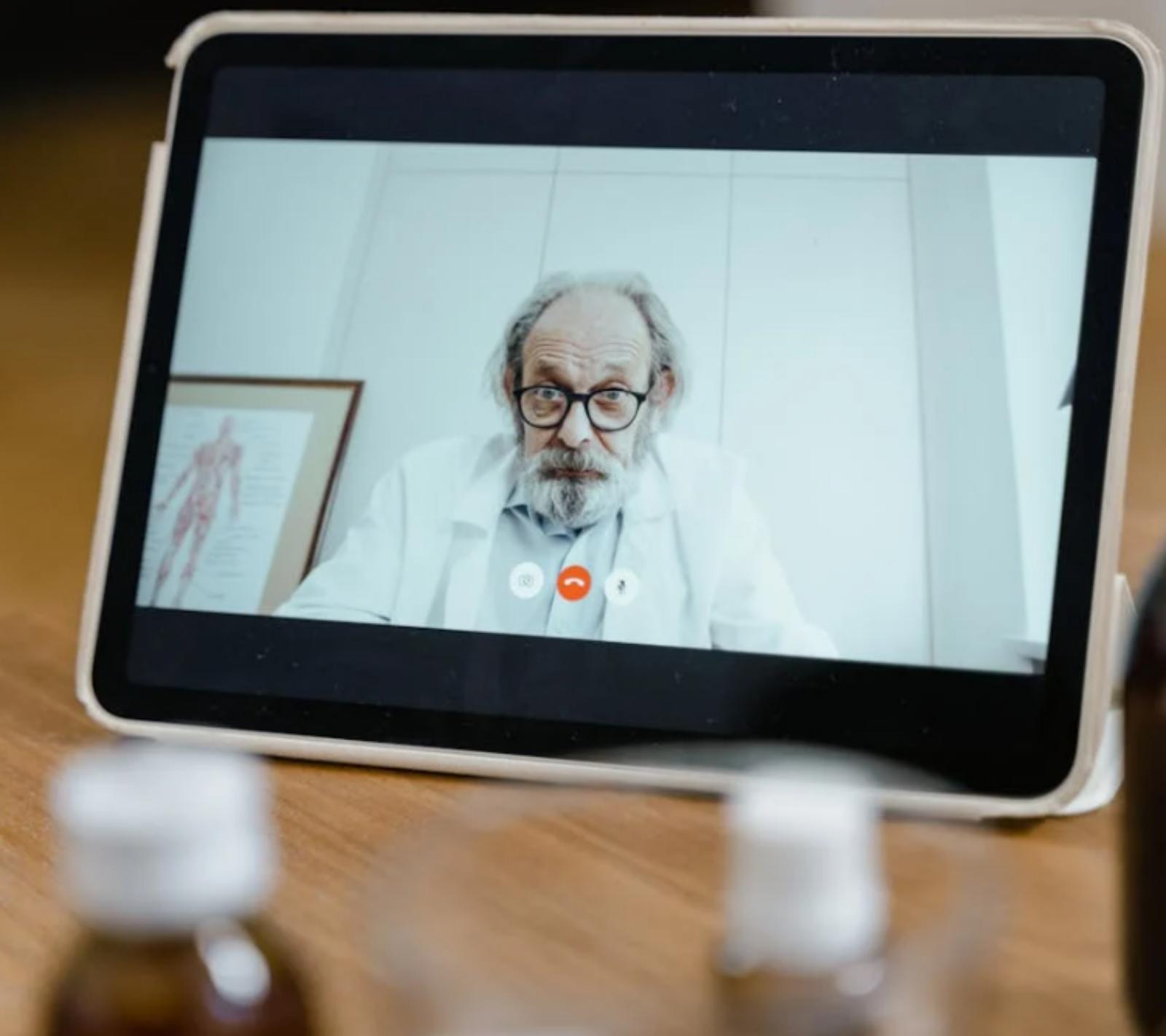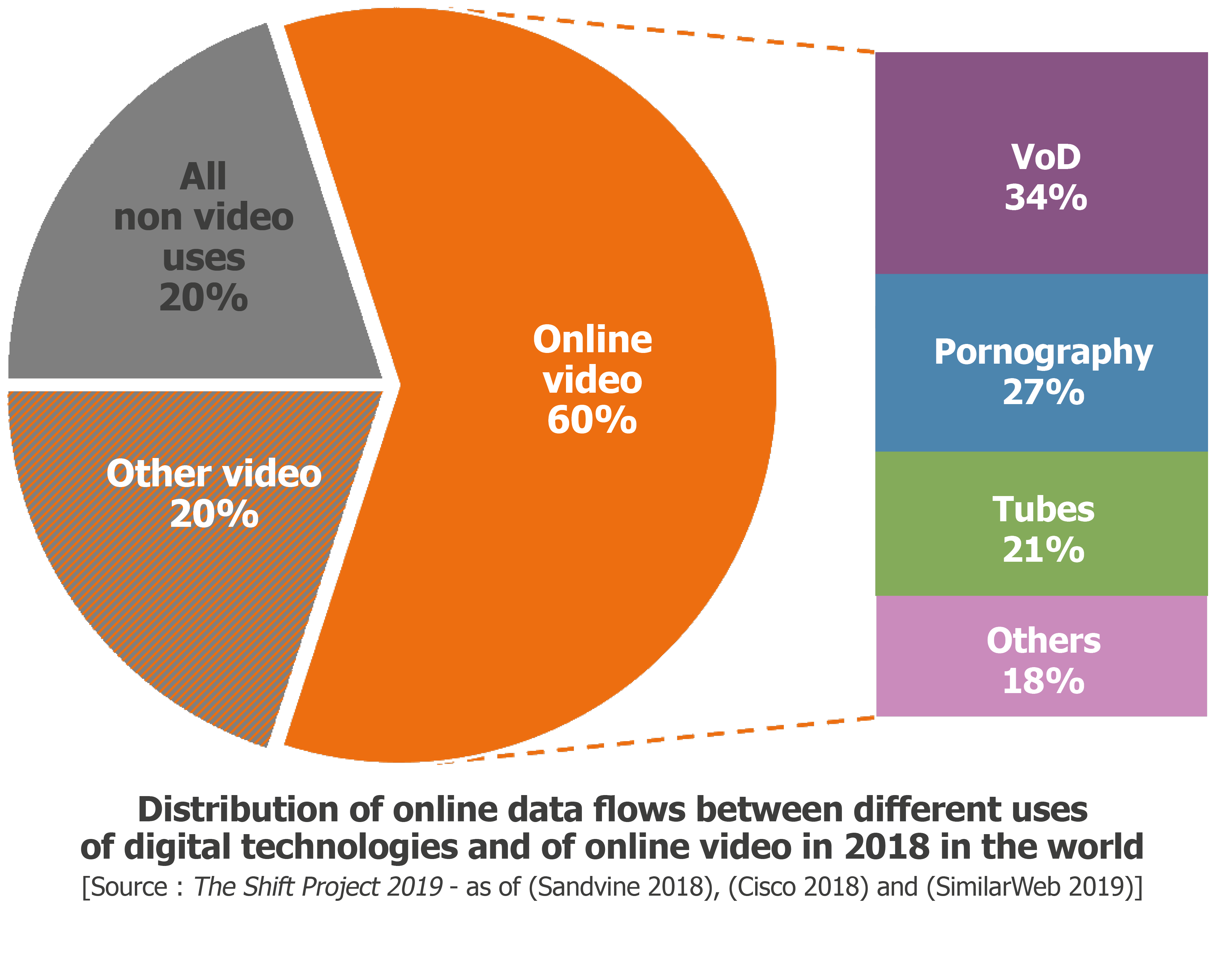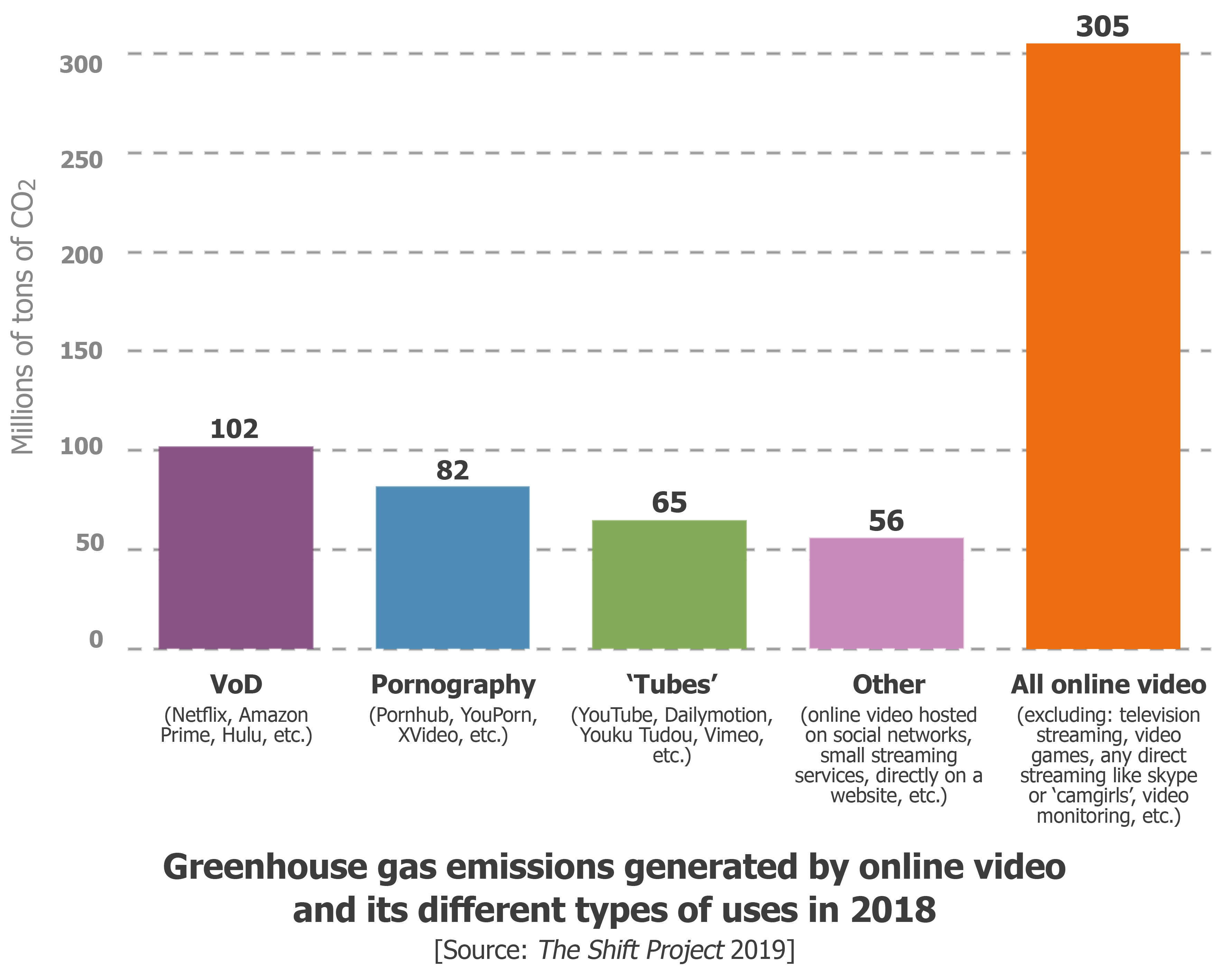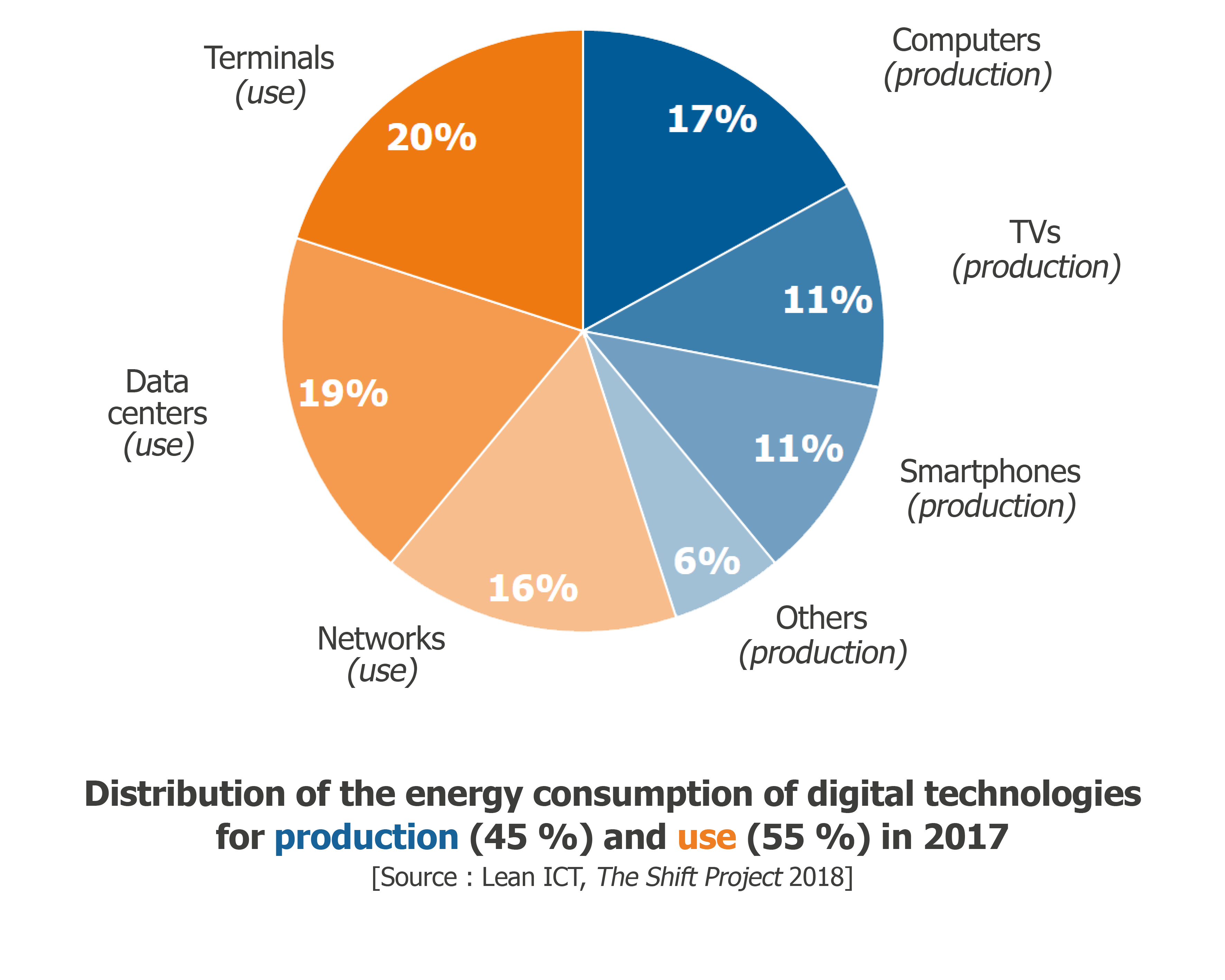11 June 2019
Climate crisis: the unsustainable use of online video
Our report on the environmental impact of ICT
Read the summary11 June 2019
Our report on the environmental impact of ICT
Read the summary
Digital technologies now emit 4% of greenhouse gas emissions (GHG), and its energy consumption is increasing by 9% a year. The Shift Project published in March 2019 the rapport “Lean ICT – Towards Digital Sobriety” (2019). In it we recommended making digital transition compatible with climate imperatives and the constraints of resources. Digital sobriety consists in prioritizing the allocation of resources as a function of uses, in order to conform to the planet’s physical boundaries, while preserving the most valuable societal contributions of digital technologies. This requires questioning the pertinence of how we use digital technologies, one of which is online video whose use we focus on in this new report “Climate crisis: The unsustainable use of online video – A practical case study for digital sobriety” (2019).
Technical details of the study can be found in ANNEX of the full report, and here:
To complement the report “Climate crisis: The unsustainable use of online video”, The Shift Project provides three tools to reveal the hidden environmental impact of digital technology to users and citizens. The aim is for them to grasp the consequences of data consumption, and more particularly video consumption. Two tools make it possible to unveil the invisible impacts of your internet uses, and the third tool allows you to decrease the impact of the production and online posting of videos as a professional or a simple amateur.
The environmental impact of digital technology is now recognized as unsustainable, but continues to grow. The energy consumption of digital technologies is increasing by 9% a year, and already represents% of global greenhouse gas emissions. The use of digital technology accounts for 55% of its energy consumption, compared to 45% for the production of equipment. This was demonstrated by our report “Lean ICT – Towards digital sobriety” published in 2018.
Getting this impact under control implies requires a transition from digital intemperance to digital sobriety. This means prioritizing the allocation of resources as a function of uses, in order to conform to the planet’s physical boundaries, while preserving the most valuable societal contributions of digital technologies.
We live in a world where only one form of digital use, online video, generates 60% of of world data flows and thus over 300 million tons of CO2 per year. This use is far from being “dematerialized”. On the contrary, it represents 20% of the greenhouse gas emissions of all digital devices (use and production included), and 1% of global emissions, i.e. as much as Spain. The rest of the uses of digital technologies comprise 20% of other types of video, and 20% of non-video uses – the latter covering all the non-video possibilities opened by digital technologies.
Online video, which is the subject of this report, is therefore a particularly significant practical case for the implementation of digital sobriety. In this 60% of global data flows generated by online video, there are 4 main types of content, none of which is negligible.


Implementing sobriety in online video uses means reducing the use and size of video files. This requires a regulation of the uses with precise procedures, and thus a societal debate. The uses of digital technologies are to a great extent the product of a system, and not the sole result of individual consumer behavior. While regulation can be grounded in existing tools and organizations, it also requires a societal debate. Indeed, in a world confronted by such limitations as those imposed by climate change and the depletion of natural resources, not choosing between uses will lead to the random imposition of constraints rather than to arbitration between options.
From the standpoint of climate change and other planetary boundaries, it is not a question of being “for” or “against” pornography, telemedicine, Netflix or emails: the challenge is to avoid a use deemed precious from being impaired by the excessive consumption of another use deemed less essential. This makes it a societal choice, to be arbitrated collectively to avoid the imposition of constraints on our uses against our will and at our expense. In the 21st century, not choosing is no longer a viable option: are we ready for it?

The report “Climate crisis: The unsustainable use of online video – A practical case study for digital sobriety” (2019) was led by Maxime Efoui-Hess, an engineer specialized in climate and computer modeling, who graduated from ISAE-SUPAÉRO, Université Paul Sabatier and the French Meteorology University. He is co-author of the report “Lean ICT – Towards a digital sobriety” (The Shift Project 2018).
On the basis of the case study of online video, The Shift Project proposes an initial series of questions to be asked explicitly in view to reducing the impact of digital uses intelligently, and thus implementing digital sobriety. The Shift Project consulted a panel of experts and academics specialized in the societal issues of digital technology and online video, including: Jean-Samuel Beuscart (LSIS), Jocelyn Lachance (University of Pau), Julien Marcinkowski (expert in change management), Marion Muracciole (expert in gender equality), Gauthier Roussilhe (designer) and Lan Anh Vu Hong (expert in web marketing). These interviews have been combined with a literature review, calculations and an analysis of reports from regulatory bodies.
28 Mar. 2024|Report
Virtual worlds and Networks facing the dual carbon constraints

26 May. 2021|Note
Environmental impacts of digital technology : 5-year trends and 5G governance

14 Oct. 2020|Report
Deploying Digital Sobriety

15 Jun. 2020|Note
Did The Shift Project really overestimate the carbon footprint of online video ?
